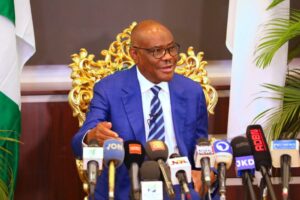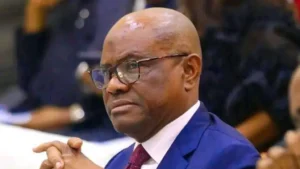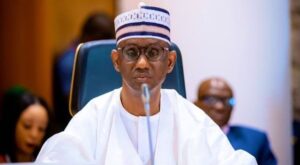Nigerian activist, Abiodun Olamide Thomas, also known as “Horlarmidey Africano,” has been arrested in Lagos following her outspoken criticism of police misconduct. Her detention raises concerns about the harassment of activists and the state of human rights in Nigeria.
Abiodun was reportedly arrested early Friday morning at her home in Lagos after police detained her brother on Thursday to track her whereabouts. She was first taken to Alade Police Station and later transferred to the State Command in Ikeja. Before her arrest, her daughter managed to send a distress message to the Take-It-Back Movement (TIB), a group that advocates for justice and human rights.
Abiodun had previously voiced concerns about being targeted by senior police officer ACP Olumuyiwa Adejobi. She claims her arrest is linked to her participation in the #EndSARS memorial protest on October 20, 2024, where she experienced police brutality.
She alleges that Adejobi has been using his position to track and intimidate her. Despite the claims, she insists that no formal invitation or charges have been filed against her.
Abiodun shared that police officers have been harassing her online, leaving abusive comments on her social media posts. One officer reportedly stated she hadn’t been punished enough for her activism. She also mentioned that some of her friends and associates have been targeted for questioning.
Abiodun strongly denies committing any crime, stating her only offense is speaking out against police brutality and participating in peaceful protests. She believes the ongoing harassment is an attempt to silence her activism and discourage others from speaking out.
“I have done nothing wrong. I am only being hunted for participating in the EndSARS memorial struggle,” she said.
Abiodun’s arrest has sparked outrage among activists and human rights organizations, who view it as a violation of her rights and freedom of expression. Efforts to get comments from ACP Olumuyiwa Adejobi have been unsuccessful.
This incident highlights the challenges faced by activists in Nigeria, particularly those who criticize the authorities. It also underscores the need for reforms to protect human rights and freedom of speech in the country.







